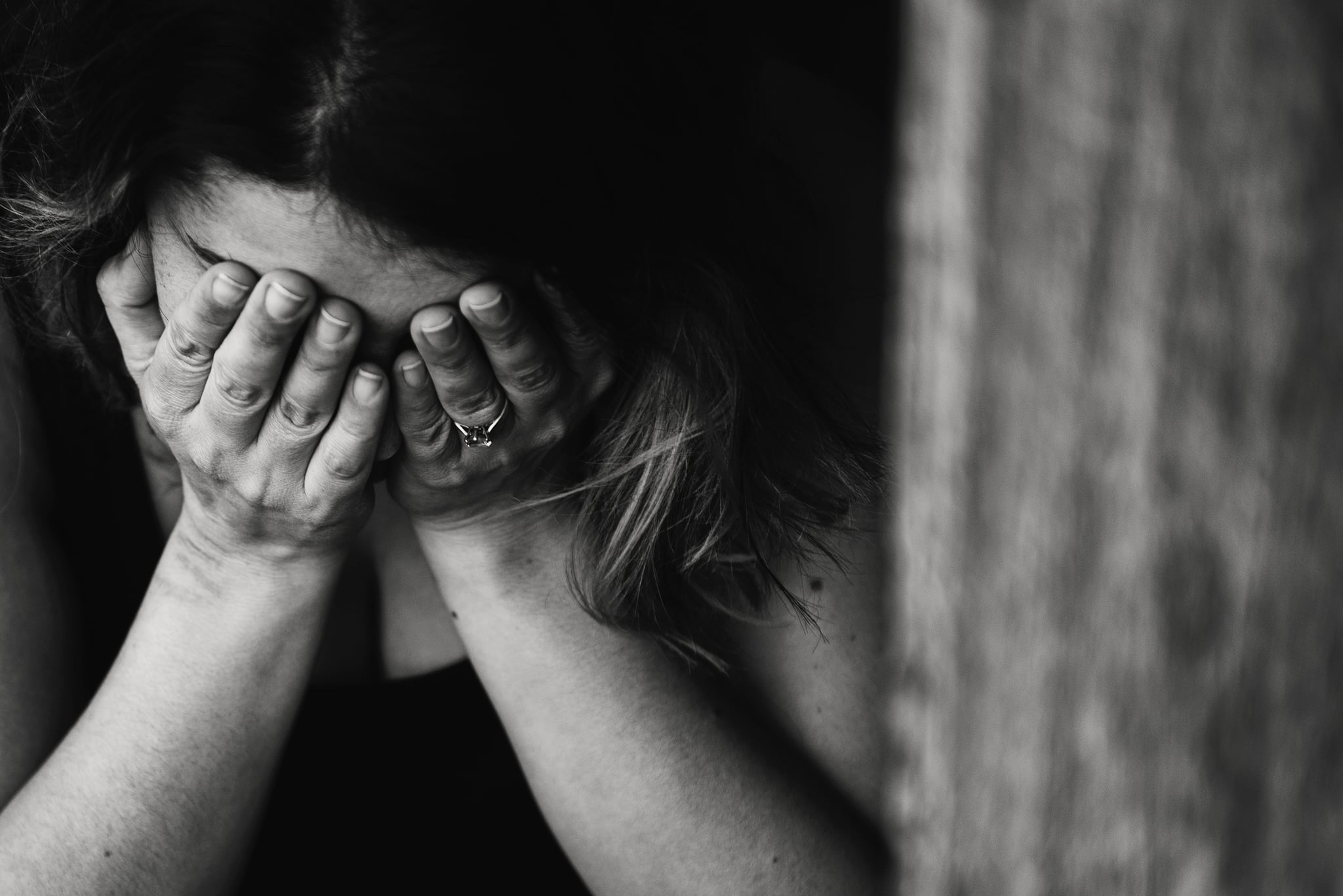How to Describe Anxiety
This Is How I Explain My Anxiety to People Who Have No Idea What It's Like

Even some of the closest people in my life don't know I struggle with major anxiety. Although I've always been predisposed to worrying (Jewish family, New Yorker, mom), things haven't always been this bad. My struggle with all-consuming anxiety started after a disorienting, out-of-the-blue, unexpected turn of events in my life that left me feeling like I'm living every day in an alternate universe.
About nine months ago, we lost a baby late in pregnancy due to a genetic issue I'd never even heard of. I have three healthy children and never saw this coming. So compounding grief, which I was lucky enough never to have experienced before this loss, were shock and fear — overwhelming fear that something, anything, bad can happen at any moment, with no forewarning.
It's this new way of viewing the world around me — the basic realisation that bad things don't just happen to other people, that I am not safe from truly leveling pain — that produces my crippling anxiety. As I've explained to my husband, I basically wait for the other shoe to drop from the moment I wake up each day until I go to bed and whenever I wake up during the night, which is often.
What feels so different from the situational worrying I used to experience preloss (sick kiddo, work deadline, family drama) is that this worry is unrelenting. It never stops. Even when I'm not consciously thinking about our loss or what else could go wrong — like that I could have cancer, my kids could get really sick or hurt, someone else I love could die unexpectedly — the anxiety is still there. My grief counselor told me this is normal, that anxiety after a loss can be triggered by the subconscious.
I think the best way to describe my anxiety to the very few people I confide in is that I can't shake the overpowering feeling that nothing and nobody around me changed, but I did.
No matter if it's "normal" or not, this is a very frustrating way to live, especially since nothing really dulls the panicky sensations I walk around with all day, every day. Living with anxiety is also very isolating, because people who don't have anxiety don't understand. My husband asks me all the time, "What are you worried about?" And sometimes I can't answer him. I'm not worried about a specific thing, but rather, everything.
As I've tried to tell him, most situations make me panicky, breathless, and lightheaded. I feel as if I'm floating as I drop my daughter off at school. I'm having trouble concentrating on what a friend is saying when we meet for coffee. My mind is somewhere else while my kids play at the park. Most of the time, I focus on breathing in, then out. That's about all I am capable of in social settings or when I am going through the daily routines I used to perform carelessly before our loss.
I think the best way to describe my anxiety to the very few people I confide in is that I can't shake the overpowering feeling that nothing and nobody around me changed, but I did. Completely. So everything I do, everywhere I go, and everyone I talk to seems unfamiliar, even though it isn't. Maybe this is a better way to describe how I feel: it's as if I'm living in my body, but I'm not me anymore. I'm a new me. And I'm still getting used to her.
I may always live with anxiety. I'm told it will get better over time, and I can see small ways in which things are easier each day. I can make eye contact with another mom at school pickup, when I couldn't have dreamed of doing so six months ago. I no longer mind going into the sandwich shop I used to frequent when I was pregnant, but at first, I dreaded even driving by it. Still, I long for a time when most situations don't require a massive effort. When I'm not telling myself to just breathe. When I feel like any other person doing simple things like taking my kid to school . . . and not a mom struggling to keep it together just one more day.






